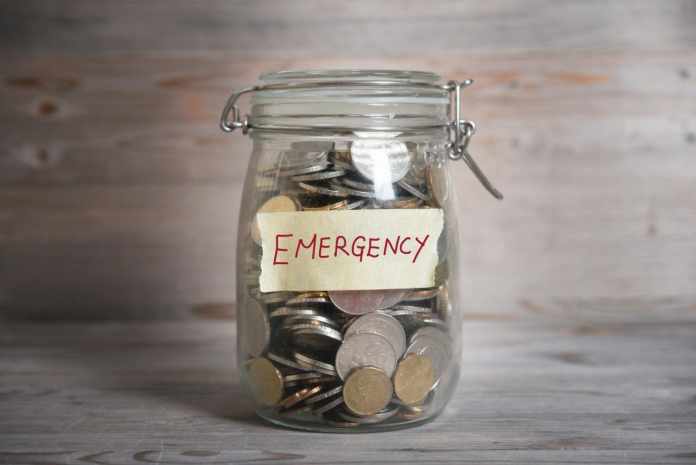Around 40% of Americans don’t have enough money on hand to cover a $400 emergency. About 22% of Americans only have between $1,000 and $5,000 in savings. Unfortunately, you never know when a financial emergency might strike.
If you’re in the middle of a financial crisis, it helps to have a plan. Keep reading for the tips you need during a crisis. With these tips, you can develop a financial strategy to dig yourself out of the hole.
Otherwise, an emergency could put unnecessary stress on your shoulders. You might struggle to gain the funds you need.
Don’t fall into debt! Instead, learn how to react during a financial emergency with these tips today.
Table of Contents
1. Don’t Freak Out
First, take a deep breath. It’s important that you remain calm before developing your financial strategy. Otherwise, you might make rushed, desperate decisions moving forward.
Think about the last time you were in a stressful situation. Did you make brash decisions you eventually regretted? Remaining calm can help you avoid making choices that might jeopardize your finances further.
Don’t let a state of panic or fear make decisions for you.
Remember, you’re not the only one who’s encountered a financial crisis. You can learn from people who were once in your shoes.
As you start developing your financial strategy, remind yourself to sit on it for a day or two. Wait 24 hours before you make any hasty decisions. Waiting a day or two can help you review your choices.
You’ll have the time you need to vet your options moving forward. Otherwise, you might do something you regret, like pawning your wedding ring. You don’t want to make a choice you can’t take back.
Instead, take a deep breath. Don’t make any permanent decisions right away.
Build your financial strategy. Then, consider consulting an expert. You can rely on their experience and expertise.
They can help you recognize the potential consequences of any financial decisions you’re considering. They could help you explore your options moving forward, too.
2. Evaluate the Situation
Immediately after you realize you’re dealing with a financial emergency, take a moment to sit down. Review the situation in full. Remember, you don’t want to make hasty decisions.
Evaluating the situation can help you gather the information you need. Then, you can minimize your stress and make more informed decisions.
First, try to find the root cause of the emergency. What happened? Was anyone else involved?
Understanding what caused the situation can help you avoid the same mess in the future. Otherwise, you might repeat the same mistakes that caused the financial crisis in the first place.
You might make choices that only temporarily put a bandaid on the situation, too. Unfortunately, a short-term fix could make the entire situation worse.
Instead, evaluate what happened to determine the best course of action. Look for long-term solutions to minimize future stress.
3. Start Prioritizing
Sit down and make a list of your monthly expenses. Gather your bills and other important documents to evaluate every area of your spending. List these expenses in an Excel spreadsheet.
Then, organize your expenses into different categories. For example, housing (rent, mortgage, utilities) will likely fall under your priorities. List your monthly spending for entertainment, transportation, and other areas, too.
Then, set a budget for each category.
Establishing a budget for each category can help you prioritize your spending. Look for areas where you can cut back. For example, you can stop buying coffee in the morning or eating out every week.
Try to cut back on as many non-essentials as possible. You can spend more time saving and less time spending. You’ll have an easier time digging yourself out of your financial emergency once you start saving funds.
4. Learn How to Negotiate
Learning how to negotiate can help you get out of this financial crisis, too.
Call your lender before you’re severely delinquent. Otherwise, they might feel less willing to work with you. Get them on the phone before you start falling beyond payments.
Look for different areas of assistance. For example, your credit card company can help by lowering your interest rates. They might even delay payment requirements.
Your mortgage company might restructure your loan. Some utility companies are even willing to help during times of financial hardship.
5. Find Funds
If you don’t have an emergency fund set up for these situations, that’s okay. Instead, look for extra money elsewhere.
For example, you might want to consider calling friends and family members. They could help you work through your financial emergency.
You might want to consider looking into your accounts, too. For example, some 401(k) plans have a loan provision. You could borrow funds without facing penalties.
Consider get a title loan, too. You can have a look here to learn how to get started.
6. Look for Assistance
The government has social programs you can use during a sudden financial hardship, too.
For example, you might want to consider unemployment benefits if you lost your job. You can look into COBRA if your previous job provided health insurance. If you were injured on the job, consider worker’s compensation.
7. Plan for the Next Emergency
The average household has $8,863 tucked away in a savings account. People who are younger than 35, however, have less than $5,000 saved. Remember, you can’t anticipate when a financial crisis will strike.
Take the time to prepare for the next financial emergency before it happens.
First, create an emergency fund. Add a little money to your fund every month. You can build a safety net you can always dip into during a financial crisis.
Having an emergency fund in place can give you peace of mind in the future. You can keep unnecessary stress off your shoulders.
Beyond that, you’ll know exactly what to do the next time a financial crisis strikes.
Don’t Panic: 7 Smart Steps to Take During a Financial Emergency
A financial emergency doesn’t have to ruin your life. Instead, use these seven tips to work your way out of a crisis. With these tips, you’ll have an easier time working through the situation.
Searching for more helpful tips? You came to the right place.
Explore our latest guides today for more helpful advice.












